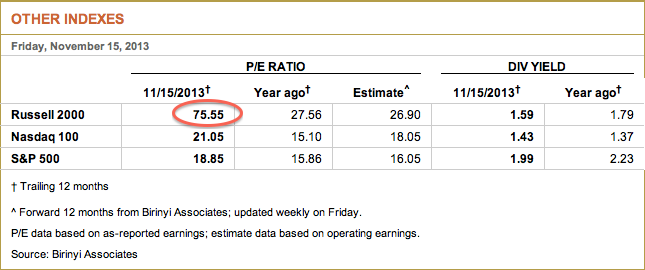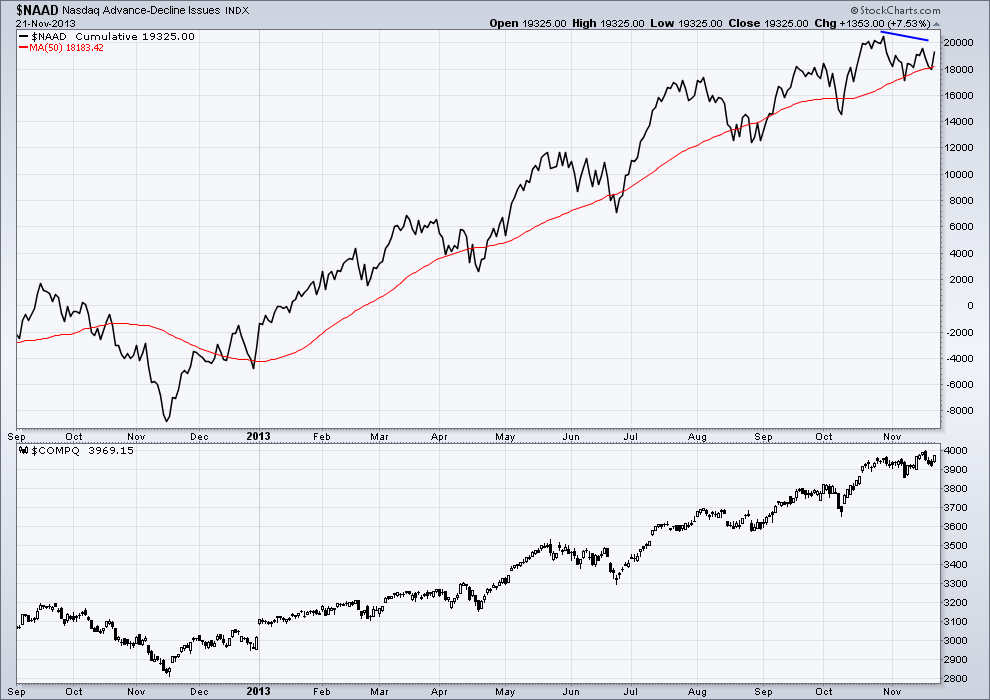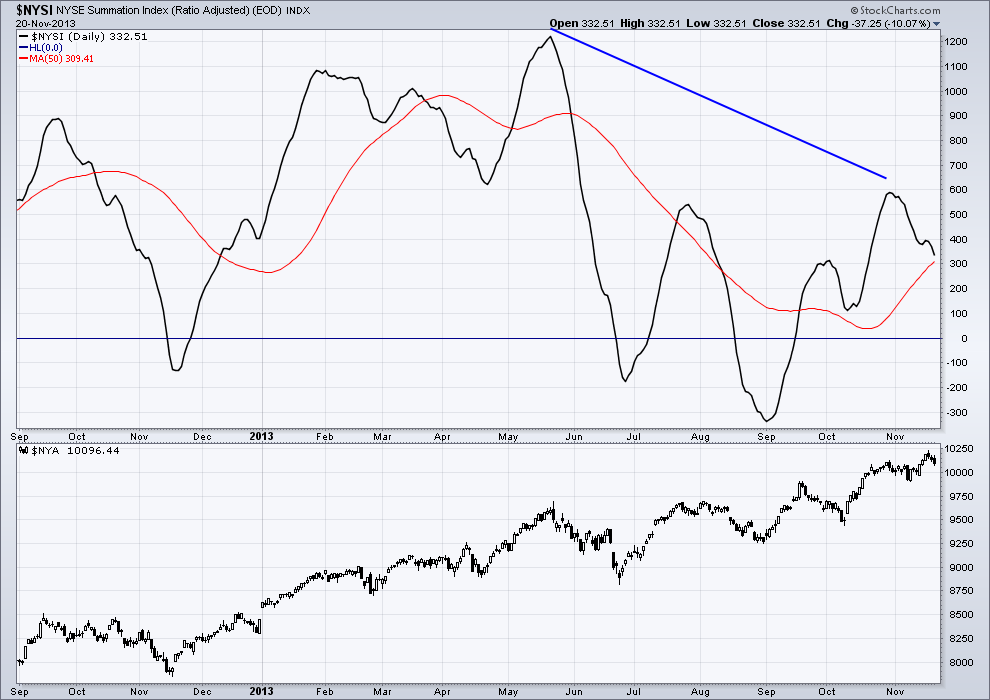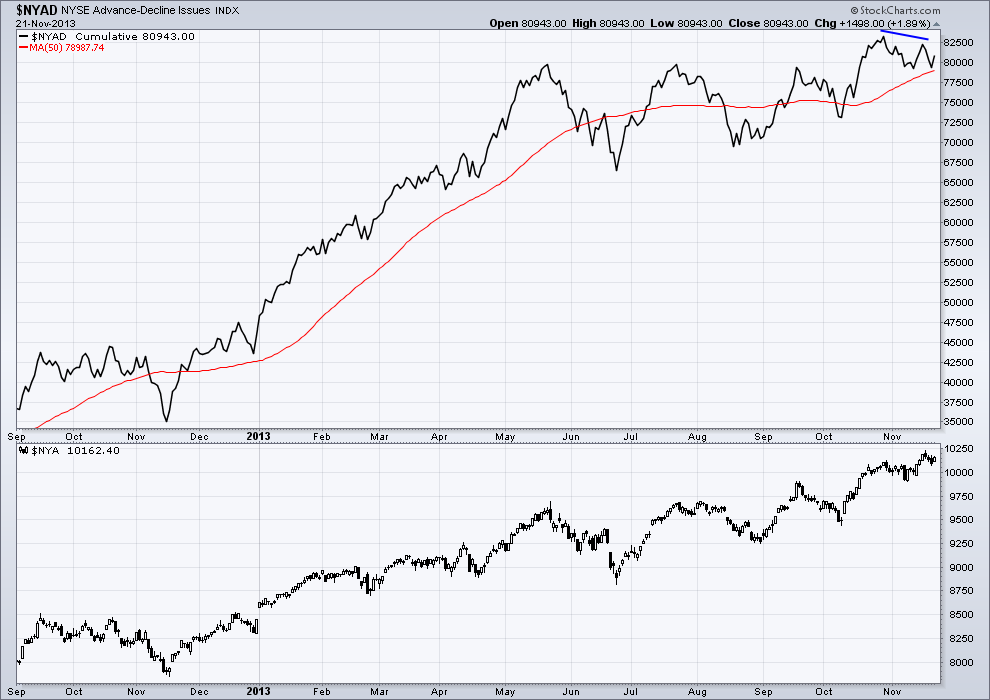There has been a pretty vociferous debate recently over applying the term “bubble” to the current stock market. I recently wrote that there are a few signs in the market now that are reminiscent of the internet bubble. However, I think that there is one point of evidence proves the point:
We have never seen this degree of overvaluation this pervasive in the stock market. The S&P 500, which represents large cap stocks, is currently 40-70% overvalued (Jeremy Grantham’s GMO leans toward the 70% side), a degree very rarely seen over the past century. Still, this is not as overvalued as was witnessed at the 2000 stock market peak. However, small cap stocks are not represented by this index and they currently trade at a 40% premium to their large cap brethren, “essentially as pricey [relative to large caps] as they’ve been in the ‘modern era.'” Thus, if large cap stocks are extremely overvalued, the broader market, as represented by both large and small cap stocks, is super-duper overvalued.
 (Graphic via wsj.com)
(Graphic via wsj.com)
This is evidenced by valuation indicators that better represent the broader market. For example, based on price-to-sales, the median stock is now more overvalued than at the 2000 or 2007 peaks. By definition, this median number will better represent the broader market because it equally factors in small caps. Another indicator that represents the broader market is the ValueLine Index, an equally-weighted index rather than market cap-weighted index. According to ValueLine, the potential upside for their index of 1,700 stocks just hit a 45 year low. This means stocks are less attractive (more overvalued) today than they were at either the 2007 or 2000 peaks.
So if we generally concluded that the 2000 stock market was a “bubble” and today’s median stock valuation is even greater than it was back then, what do we call today’s stock market?
Chart(s) of the Day:
There are plenty of divergences in the market’s internals. The recent new highs in the NYSE and Nasdaq have not been confirmed by the McClellan Summation Index or Advance/Decline Lines.



